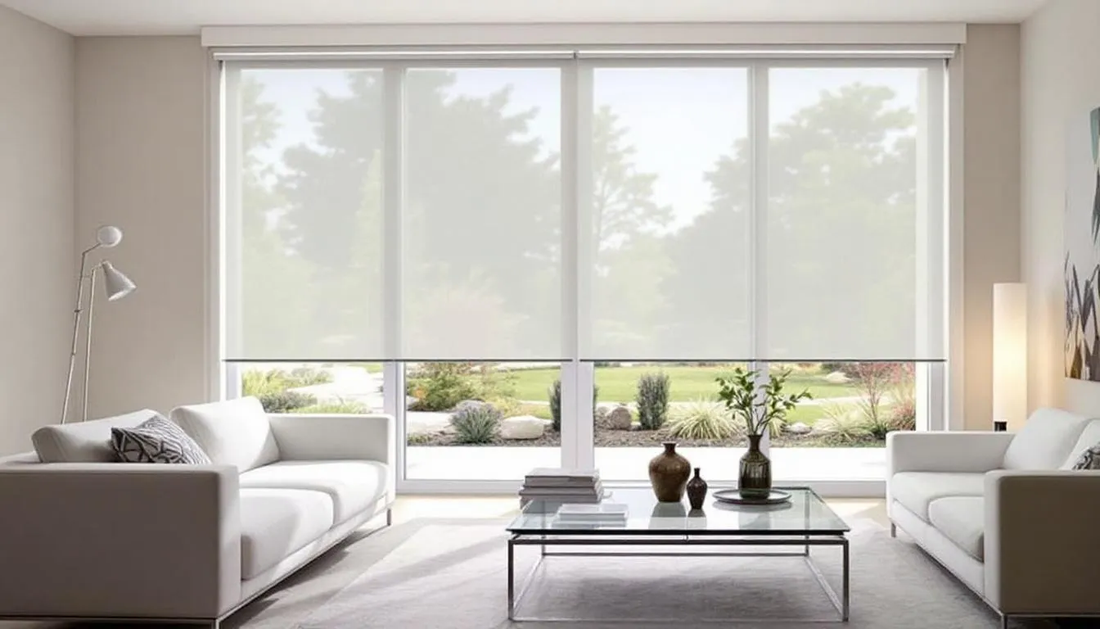
Solar Shades Pros and Cons: Complete Guide for 2025
When considering window treatments that balance style, energy efficiency, and functionality, solar shades have emerged as a leading choice for modern homeowners. These innovative window coverings promise significant benefits, from reducing energy costs to protecting your furniture from harmful uv rays. However, like any home improvement investment, understanding solar shades involves weighing both advantages and limitations.
This comprehensive guide examines the complete picture of solar shades pros and cons, helping you make an informed decision about whether these window treatments are right for your home. We’ll explore everything from energy savings potential to privacy considerations, ensuring you have all the information needed to choose the perfect shade solution for each room in your house.
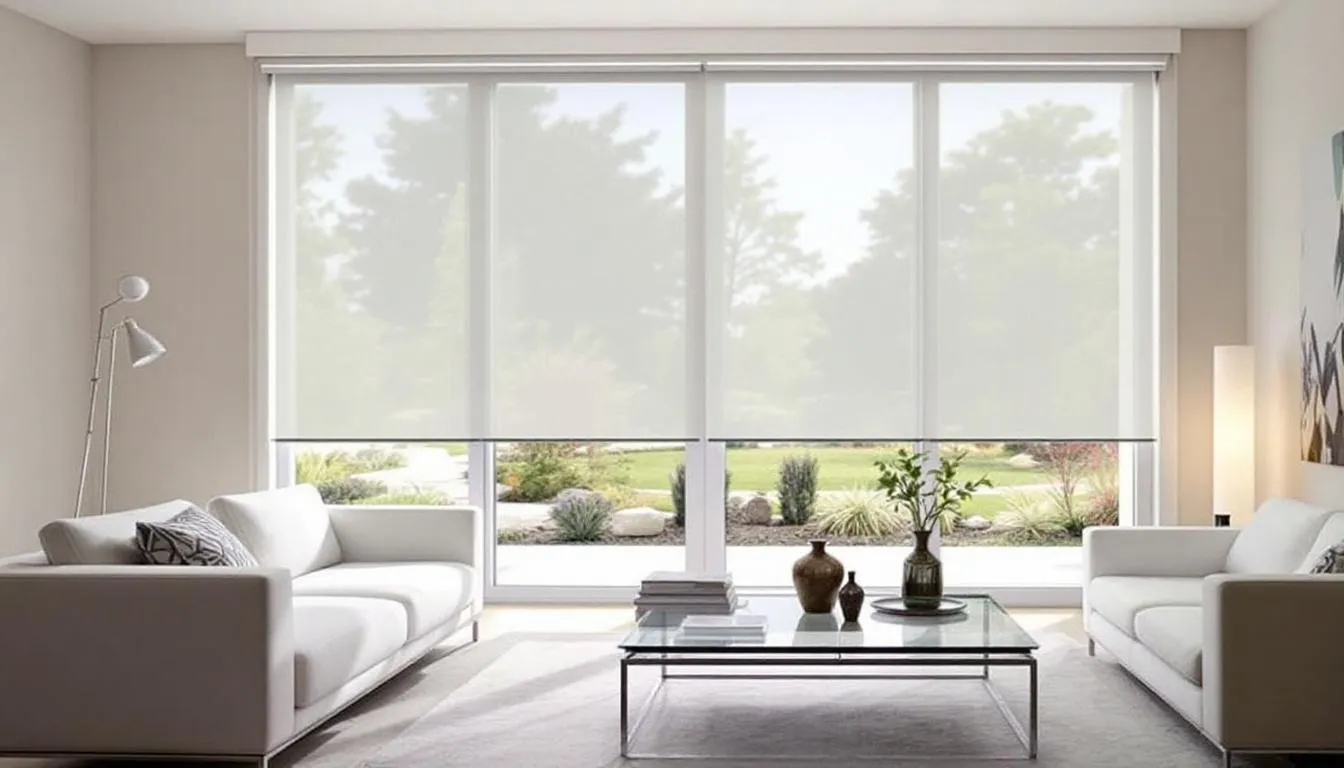
What Are Solar Shades?
Solar shades represent a specialized category of window treatments designed specifically for light control and sun protection. Unlike traditional blinds or curtains, these innovative shades feature open-weave fabrics constructed from materials like PVC, polyester, vinyl, and fiberglass. The unique mesh construction allows solar shades filter light while maintaining visibility to the outdoors.
The defining characteristic of solar shade fabrics lies in their “openness factor,” ranging from 1% to 14%. This percentage determines how tightly woven the fabric is and directly impacts performance. Lower openness factors like 1-3% provide maximum uv protection and heat reduction but limit outdoor views. Higher openness factors of 10-14% offer clearer visibility while providing less protection from the sun’s harmful uv rays.
Solar shades work by reflecting and absorbing solar energy before it enters your home. A solar shade with approximately 3% openness can block up to 59% of incoming solar heat through a double-paned window, demonstrating their effectiveness in managing solar heat gain. This makes them significantly more energy efficient than standard roller shades or traditional window coverings.
Unlike blackout shades that completely block light, or cellular shades that focus primarily on insulation, solar shades excel at allowing natural light while filtering out harsh sunlight and glare. This unique balance makes them ideal for spaces where you want to maintain outdoor views without sacrificing comfort or protection.
When comparing shades vs traditional options, solar shades offer a modern solution that addresses multiple concerns simultaneously. World Wide Shades specializes in providing high-quality solar shade options with various openness factors and customization features to meet specific home requirements.
Solar Shades Pros: Key Benefits
Energy Efficiency and Cost Savings
One of the most compelling solar shade benefits lies in their exceptional ability to enhance energy efficiency. Solar shades contribute to substantial cooling costs reduction by blocking up to 90% of solar heat before it enters your home. This remarkable performance translates into real energy savings, with many homeowners experiencing 15-25% reductions in their utility bills during peak summer months.
The energy efficient solution works by intercepting solar radiation at the window, preventing heat gain that would otherwise force your air conditioning system to work harder. During the hottest parts of the day, solar shades can reduce indoor temperatures by several degrees, providing immediate comfort while reducing the strain on HVAC systems.
Long-term cost benefits often outweigh the higher initial cost of solar shades. While the upfront investment may be greater than basic window treatments, the ongoing energy savings compound over time. Professional installation ensures optimal performance, maximizing these energy efficient benefits throughout the shade’s 10-15 year lifespan.
Superior UV Protection
Solar shades offer exceptional protection against the sun’s harmful rays, blocking up to 99% of ultraviolet radiation depending on the chosen openness factor. This superior uv protection serves multiple purposes beyond just comfort – it actively preserves your interior investments and protects your family’s health.
Furniture, flooring, artwork, and textiles suffer significant damage from prolonged uv exposure, often fading or deteriorating within just a few years without proper protection. By blocking uv rays effectively, solar shades extend the lifespan of your interior furnishings, preventing costly replacements and maintaining the aesthetic appeal of your living spaces.
The health benefits of reduced uv exposure indoors cannot be overlooked. Extended exposure to ultraviolet radiation has been linked to skin cancer and premature aging. Solar shades create a protective barrier that allows you to enjoy natural light in your dining room, living rooms, and other spaces without worrying about harmful uv rays reaching you and your family.
Glare Reduction and Eye Comfort
Modern homes often feature large windows that, while providing beautiful views, can create significant glare problems. Solar shades excel at reducing glare while maintaining the benefits of natural lighting. This makes them particularly valuable in home offices where screen visibility is crucial, and in living rooms where television viewing comfort matters.
The advanced light filtering capabilities of solar shades transform harsh sunlight into soft, diffused illumination. This glare control creates more comfortable environments for reading, working, and relaxing without the eye strain associated with direct sunlight. Unlike completely blocking light with blackout curtains, solar shades maintain brightness while eliminating the discomfort.
For families with children or elderly members whose eyes are more sensitive to bright light, the glare reduction provided by solar shades significantly improves daily comfort. The consistent light filtration throughout the day eliminates the need to constantly adjust window treatments as the sun moves across the sky.
Preserved Outdoor Views
One of the unique advantages that solar shades offer over other window treatments is their ability to maintain outdoor views while providing protection. During daylight hours, the open-weave fabric allows clear visibility of gardens, landscapes, and cityscapes, preserving the connection between indoor and outdoor spaces.
This feature is particularly valuable for homes with scenic views or for homeowners who enjoy watching outdoor activities. Whether you’re monitoring children playing in the yard, keeping an eye on approaching weather, or simply enjoying a beautiful landscape, solar shades ensure you don’t sacrifice visibility for protection.
The level of outdoor visibility depends on the openness factor chosen. Higher openness percentages provide clearer views but offer less sun protection, while lower openness factors prioritize protection while still maintaining reasonable visibility. This flexibility allows homeowners to customize their choice based on each room’s specific needs and priorities.
Modern Aesthetic Appeal
Solar shades bring a sleek, contemporary aesthetic that complements modern home design trends. Their clean lines and minimalist appearance work well with various architectural styles, from traditional homes seeking updated window treatments to ultra-modern spaces requiring sophisticated light control solutions.
The wide range of available colors allows homeowners to choose options that either blend seamlessly with existing décor or create striking design statements. Neutral tones work well for understated elegance, while bolder colors can serve as focal points in room design schemes.
Custom sizing ensures perfect fit for any window configuration, while motorized options add convenience and technological sophistication. The uncluttered appearance of solar shades contributes to the clean, organized look that many homeowners desire in their living spaces.
Durability and Low Maintenance
High-quality solar shade fabrics resist wear, fading, and moisture damage, making them suitable for various home environments including kitchens and bathrooms. The synthetic materials used in solar shades are engineered for longevity, typically lasting 10-15 years with proper care and minimal maintenance.
Cleaning solar shades requires only simple procedures – regular vacuuming to remove dust and occasional cleaning with a damp cloth for deeper maintenance. This low-maintenance characteristic makes them practical choices for busy households where time for window treatment care is limited.
The moisture resistance of quality solar shades makes them suitable for areas where humidity and temperature variations occur. Unlike some traditional window treatments that may warp or deteriorate in challenging conditions, solar shades maintain their appearance and functionality throughout their extended lifespan.
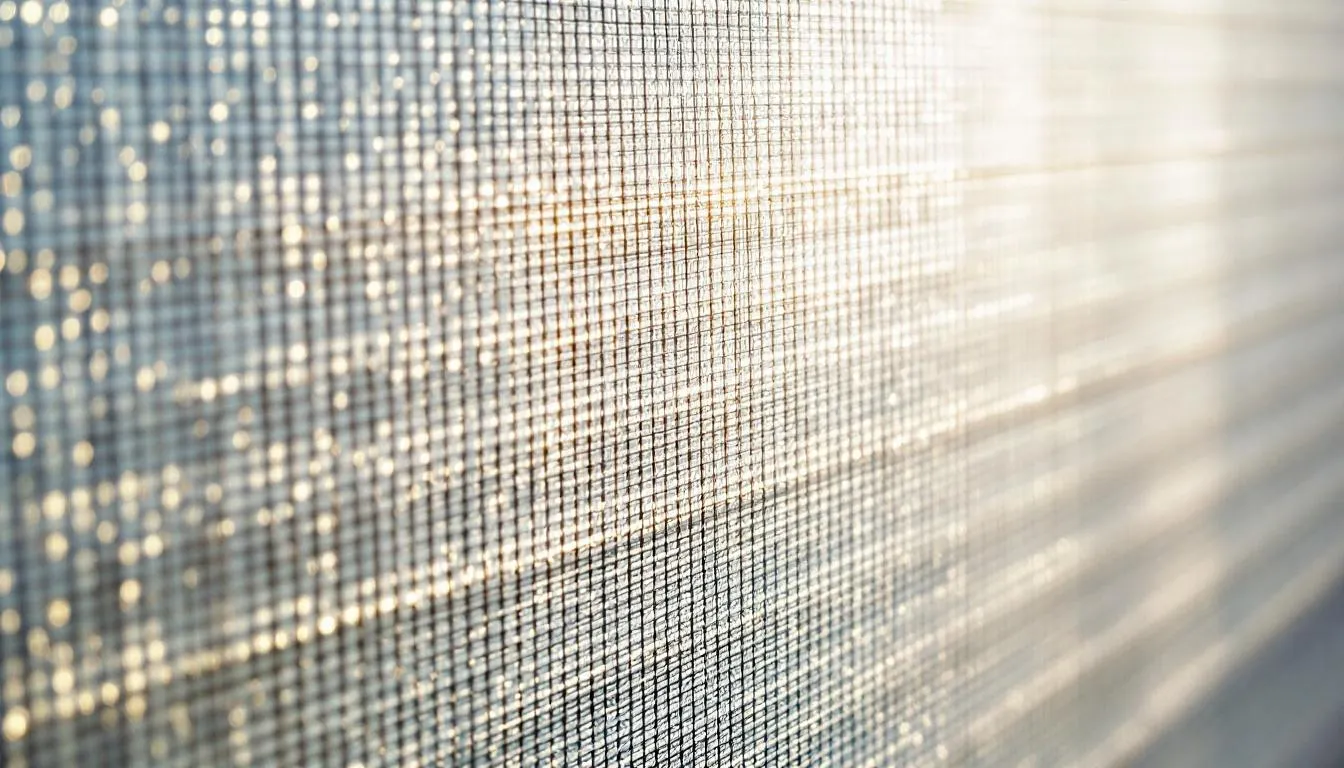
Solar Shades Cons: Important Limitations
Limited Privacy at Night
The most significant limitation among the cons of solar shades relates to privacy concerns during evening hours. When interior lights are on after dark, the open-weave fabric that provides daytime benefits becomes a liability, making indoor activities visible from outside. This see-through effect can be particularly problematic in ground-floor rooms or urban settings where neighbors or passersby have clear sight lines to windows.
This privacy limitation means that homeowners often need additional window treatments for complete nighttime privacy. Bedrooms, in particular, may require layering solar shades with blackout shades or curtains to ensure privacy at night and complete darkness for sleep. This necessity for dual systems increases the overall cost and complexity of window treatment solutions.
The degree of nighttime visibility varies with the openness factor chosen. Lower openness percentages provide somewhat more privacy than higher ones, but even 1% openness fabrics allow some visibility when interior lights create contrast with the dark exterior.
Higher Initial Investment
When comparing costs, solar shades typically represent a higher initial cost than basic window treatments. While standard roller shades might cost $50-$150 per window, quality solar shades range from $150-$400 per window, with motorized options reaching $300-$800 per window. Custom sizing and premium fabrics can increase these prices further.
Professional installation, while recommended for optimal performance, adds additional expense to the total investment. However, this upfront cost must be weighed against the long-term energy savings and extended lifespan that quality solar shades provide. Many homeowners find that the energy efficient benefits offset the higher initial investment over time.
The cost consideration becomes more significant when outfitting entire homes, as the per-window expenses multiply across multiple rooms. Budget-conscious homeowners may need to prioritize which rooms receive solar shades first, focusing on those with the greatest sun exposure or energy efficiency needs.
Limited Light Control Options
Unlike traditional blinds or adjustable shutters, solar shades have fixed openness factors that limit light control flexibility. Once installed, the amount of light entering the room remains relatively constant throughout the day. This limitation means you cannot achieve complete darkness like blackout shades provide, nor can you fine-tune light levels for different activities or times of day.
For rooms requiring versatile lighting control – such as media rooms where you might want complete darkness for movie watching or bedrooms where room darkening is essential for sleep – solar shades alone may not provide adequate light blocking. The fixed nature of light filtering means homeowners must choose carefully based on the primary function of each space.
This limitation often necessitates layering with additional window treatments in rooms where maximum light control versatility is needed. The inability to completely block light makes solar shades unsuitable as standalone solutions in spaces where total light blocking is occasionally required.
View Restrictions Based on Openness Factor
While solar shades preserve outdoor views better than many alternatives, the degree of visibility depends heavily on the chosen openness factor. This creates a balancing act between sun protection and view quality that may require compromises.
Lower openness factors (1-3%) provide excellent uv protection and heat control but can make outdoor views appear somewhat filtered or hazy. Higher openness factors (10-14%) offer clearer views but provide less protection from harmful uv rays and solar heat gain. This trade-off means no single openness factor optimizes both benefits simultaneously.
Different rooms may require different openness levels based on their primary functions and priorities. This can result in varied appearance across the home and may complicate the selection process for homeowners seeking consistent aesthetics throughout their property.
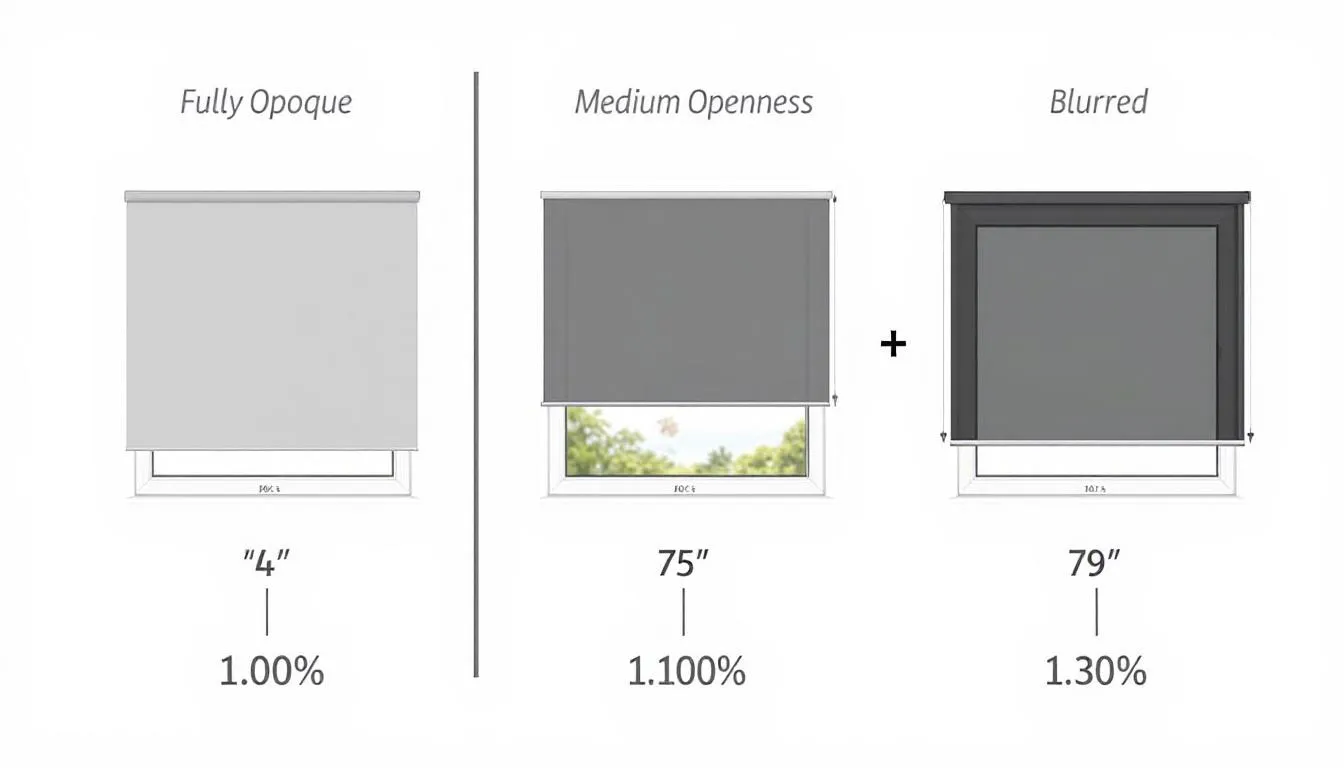
Best Rooms for Solar Shades
Solar shades perform exceptionally well in specific areas of the home where their unique benefits align with room functions and requirements. Living rooms with large windows and scenic views represent ideal applications, as these spaces benefit from allowing natural light while protecting furniture and reducing glare for television viewing and conversation areas.
Home offices have become increasingly important spaces where glare control is crucial for computer work and video conferencing. Solar shades provide the perfect solution by reducing screen glare while maintaining natural lighting that supports productivity and reduces eye strain during long work sessions.
Kitchens and dining rooms, particularly those with east or west-facing windows, experience significant sun exposure during meal preparation and dining times. Solar shades help control light entering these spaces while protecting cabinetry and furnishings from sun damage. The easy cleaning properties of solar shades also make them practical for areas where cooking vapors and moisture are present.
Sunrooms and Florida rooms face extreme sun exposure challenges that make solar shades particularly valuable. These spaces benefit from the ability to enjoy outdoor views while significantly reducing solar heat gain and protecting against the sun’s harmful rays. The energy savings in these high-exposure areas can be substantial.
When Solar Shades May Not Be Ideal
Despite their many advantages, solar shades are not optimal solutions for every situation. Bedrooms requiring complete privacy at night and total darkness for quality sleep may find solar shades insufficient as standalone window treatments. The inability to achieve complete light blocking makes them unsuitable for rooms where blackout conditions are essential.
Ground-floor windows in densely populated urban areas present privacy challenges that solar shades cannot adequately address. The daytime one-way visibility that solar shades provide reverses at night, making these applications problematic without additional window treatments for privacy.
Rooms where occupants frequently need to adjust lighting throughout the day may find the fixed light filtration of solar shades limiting. Spaces requiring maximum insulation properties – such as rooms facing extreme weather elements – might benefit more from cellular shades or other insulating window treatments.
Budget-conscious projects with tight cost constraints may find the higher initial cost of solar shades prohibitive, especially when outfitting multiple windows. In these situations, basic roller shades or other more affordable options might provide better short-term value.
Solar Shade Alternatives to Consider
For homeowners who appreciate solar shade benefits but need additional functionality, several alternative approaches merit consideration. Dual shade systems combine solar shades with blackout shades or roman shades, providing the versatility to switch between sun protection and complete privacy or room darkening as needed.
Cellular shades offer superior insulation properties for homeowners prioritizing energy efficiency through thermal control rather than solar heat management. These honeycomb-structured window treatments excel at reducing heat transfer but sacrifice the outdoor visibility that solar shades maintain.
Traditional roller shades with varying opacity levels provide more flexibility in light control, though they typically cannot match the specialized sun protection and uv blocking capabilities of purpose-designed solar shade fabrics. However, they may offer better value for applications where maximum sun protection is not the primary concern.
Layered window treatment systems combine multiple types of window coverings to maximize versatility. This approach might include solar screens for primary sun control combined with blackout curtains for privacy and complete light blocking when needed.
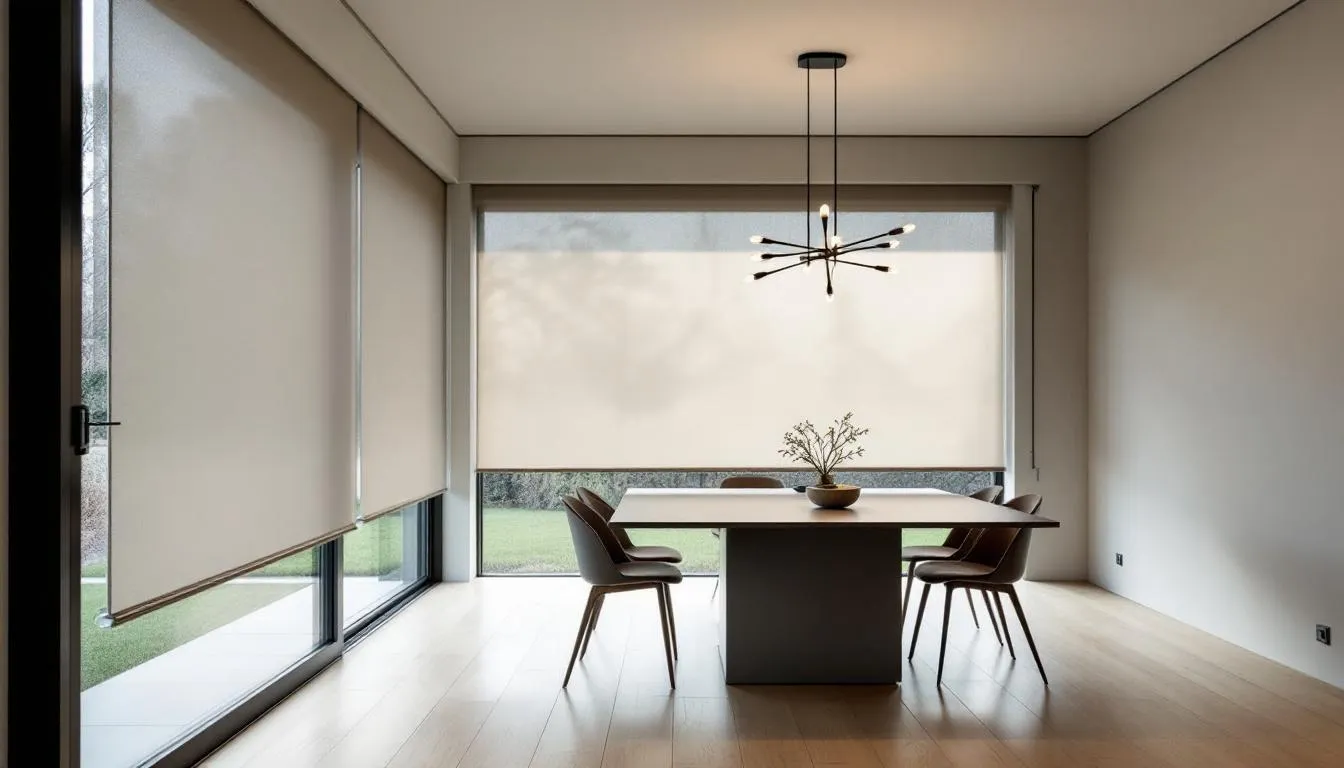
Making the Right Choice for Your Home
Selecting the appropriate window treatment requires careful assessment of your priorities regarding energy efficiency, privacy, cost, and aesthetic preferences. Understanding solar shades pros and cons in the context of your specific needs helps ensure satisfaction with your investment.
Consider each room’s individual requirements, including window orientation, privacy needs, and primary functions. South and west-facing windows typically benefit most from solar shades due to increased sun exposure, while north-facing windows may not require the same level of solar heat protection.
The long-term benefits of energy savings, uv protection, and furniture preservation often justify the higher initial cost of solar shades, particularly in homes with significant sun exposure. However, homeowners must honestly assess whether the privacy limitations and light control restrictions align with their lifestyle needs.
Professional consultation provides valuable guidance in navigating the various options, openness factors, and customization possibilities available. World Wide Shades offers expert consultation services to help homeowners evaluate their specific needs and select optimal solutions for each space in their homes.
The investment in quality solar shades from reputable providers ensures maximum performance and longevity. Custom solutions address unique window challenges and preferences, providing tailored approaches that standard off-the-shelf products cannot match.
When weighing the complete picture of solar shades pros and cons, most homeowners find that the benefits of energy efficiency, uv protection, glare control, and maintained views outweigh the limitations for appropriate applications. The key lies in understanding where solar shades excel and planning additional solutions for situations where their limitations might impact daily comfort and functionality.
Contact World Wide Shades today to explore how solar shades can enhance your home’s comfort, efficiency, and style while addressing your specific window treatment needs through professional consultation and custom installation services.


